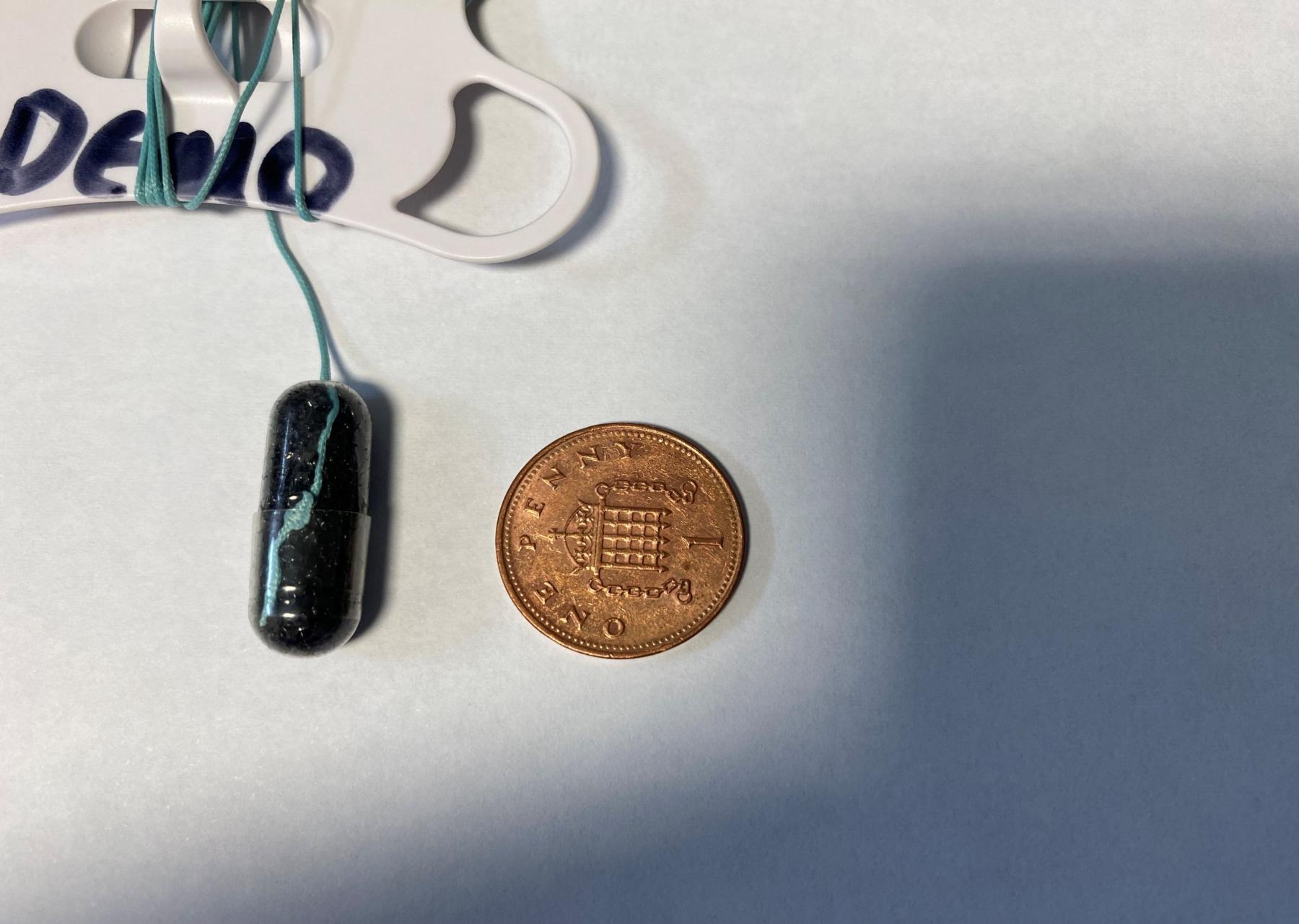Coin sized sponge offers quicker cancer biopsies

According to patients at Whipps Cross Hospital, the Cytosponge biopsy is a “quicker”, “less invasive” and “gentle” alternative to traditional biopsies that help identify important oesophageal conditions such as Barrett’s oesophagus.
Barrett’s oesophagus (BE) is considered a precancerous condition and increases the risk of oesophageal cancer. While only a small percentage of patients with BE end up developing oesophageal cancer, it is important to monitor the condition in case it begins to progress. Over 9,000 people are diagnosed with oesophageal cancer each year in the UK1. This is a cancer that is difficult to treat if not caught early, which is why screening of suspected cancer in this area is crucial.

Photo: Patient pictured with endoscopy team holding Cytosponge
How it works
Funded by the North East London Cancer Alliance, the Cytosponge is encapsulated by a pill and attached to a string. Once taken orally by the patient the pill coating dissolves to expose the Cytosponge, which takes around seven minutes. The string is then withdrawn by a healthcare professional soaking up the cells all along the oesophagus.
Lead Consultant Gastroenterologist at Whipps Cross, Sami Hoque, explains: “The Cytosponge allows more cells in the oesophagus to be collected compared to a traditional biopsy that takes a sample from a specific area of tissue. This increases the chance of identifying any mutated cells that could lead to oesophageal cancer, and means patients can be treated appropriately earlier.”
Whipps Cross is the first hospital within Barts Health to receive funding for this new way to preform biopsies. It also offers an important opportunity to upskill colleagues to confidently carry out this new procedure. The majority of patients would consider having the Cytosponge biopsy over an endoscopy in the future and would recommend the procedure to a friend.
References:
